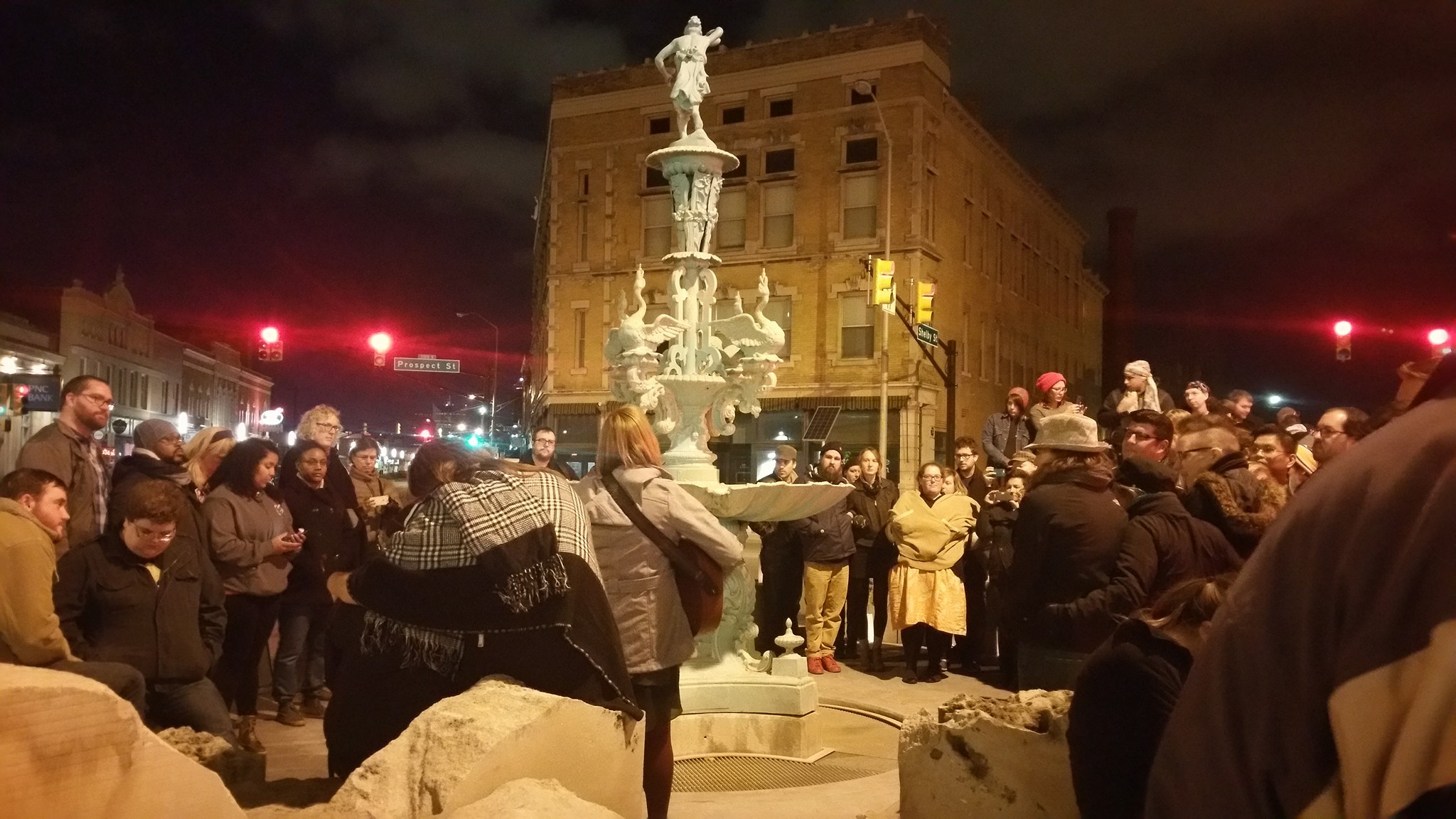The first Transgender Day of Remembrance (TDOR) I attended in Indy was a polite, sedate affair. It was hosted by a big church downtown and just so happened to have zero trans people involved. A preacher said some really kind things about us and about our lost friends and family members. Trans people sat quietly in disconnected little groups scattered among the pews and received these platitudes with reserved grace.
It was well intentioned. But it didn’t feel good enough to me.
I embarked with my friends on a quest to take TDOR back and give it to the trans community of Indy. The next year we held a humble event that was planned by trans people, presented by trans people, and attended by trans people -- several hundred of us squeezed into a tiny little unfurnished art space in Fountain Square where we could all see our breath.
The day felt like it belonged to us for the first time.
Over the years, we found more and more ways to make TDOR ours. To make it serve a community of gender diverse humans who are scared of violence, scared of their own government, abused by organized religion, and terrified of cops. Many of us can’t even meet our own basic needs due to poverty, homelessness, violence and pervasive discrimination.
But we all desperately need fellowship, friendship, and community no matter what our circumstances.
Last year, we abandoned the idea of a ceremony altogether. We found a big, bright welcoming space at The Church Within and decided to treat it like a family gathering. Like a wake or a repass. Yes we were there to remember those who have been lost to violence. But we did that by making sure our people were fed and warm.
We had people on hand to talk with attendees who needed help unpacking their feelings. We had experts around to connect trans people to services. We had a dedicated area for anyone who needed to be hugged or held. So many trans people are isolated. Starved for the simple human connections that cisgender people often take for granted.
This felt like a better way to honor the losses in our community than reading a list of names and going home.
TDOR was created as a way to remember the astonishing number of mostly black and latinx women who are murdered every year because they are transgender. But of course, every trans person who dies early dies because of violence. Because our pervasive culture of discrimination, isolation, and ostracization is inherently, viciously violent. It kills people. It has killed friends of mine. In my heart, I consider them to have died by violence.
This year we’ll be hosting TDOR again at The Church Within on the evening of Nov. 20th. I expect it to be a warm gathering of trans people coming in for a temporary reprieve from the cold. Where they’ll find new and old friends. A hug. Something warm to eat. A coat if they need one.
I want cisgender people to be involved - not just at TDOR but all days of every year. I want us to be supported and lifted up and valued by our communities and our families while we are here on this earth. Before someone decides that we need to die because of who we are. We have such gifts to offer.
Here are some ways you can support our transgender community members on TDOR and every day.
- Attend a TDOR event near you. But don’t stop there - find out who is hosting that event and ask them what you can do to support the local trans community with volunteerism or donations.
- Tell us that we belong everywhere. Resolve to back those words up with your vote, your voice, and in your daily life.
- Make sure your friends know that you believe that trans people are who they say they are.
- Seek out art, media, writing, music, and performances by trans people. That’s the best way to learn about our experiences.
- Ask your lawmakers what they are doing to make sure that transgender people in Indiana and across the country are safe and welcome.
